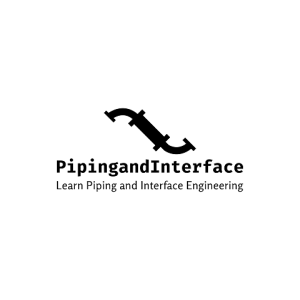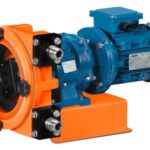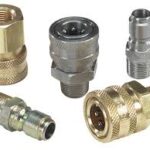Piping engineering is a subdiscipline of mechanical engineering that focuses on the design, analysis, and layout of piping systems. Piping engineers are responsible for creating and maintaining the piping systems that are used in various industries such as oil and gas, petrochemical, water treatment, power generation, and others. They work on the design, construction, and installation of pipes, valves, fittings, and other components to ensure the safe, efficient, and reliable transfer of liquids, gases, and other materials. Piping engineers also consider factors such as material selection, pressure and temperature ratings, corrosion resistance, and others to ensure the long-term reliability and performance of the piping system.
The goal of every piping engineer is to ensure that every piping system to specified, designed, fabricated, erected, inspected, tested, operated, and maintained following prevalent codes and standards and best engineering practices so that the piping system works reliably and safely in all expected conditions throughout its design life.
Who can become a Piping Engineer?
Typically, individuals who pursue a career in piping engineering have a background in mechanical engineering or a related field. To become a piping engineer, one typically needs to have a bachelor’s degree in mechanical engineering, chemical engineering, or industrial engineering. Some employers may also require a master’s degree in a relevant field or a professional engineering (PE) license.
In addition to formal education, experience in the industry is also important. Many piping engineers gain hands-on experience through internships or co-op programs while they are still in school. After graduation, many piping engineers start their careers as junior engineers and work their way up to more senior positions, such as lead piping engineers or project managers.
It is also important for piping engineers to have strong technical and problem-solving skills, as well as an understanding of relevant codes, standards, and regulations. Good communication and teamwork skills are also important, as piping engineers often work with other engineers, contractors, and clients to ensure that projects are completed on time and within budget.
Is Piping Engineering a Good Career Option?
Yes, piping engineering can be a good career option for individuals who are interested in the design and construction of piping systems. Piping engineers play a critical role in many industries and are in high demand, as they are responsible for ensuring the safe, efficient, and reliable transfer of liquids, gases, and other materials.
Piping engineering offers many opportunities for professional growth and advancement. As they gain experience, piping engineers can take on more complex projects and move into leadership positions, such as lead piping engineers or project managers. Additionally, many piping engineers choose to specialize in a specific industry, such as oil and gas or water treatment, which can lead to even more opportunities for growth and advancement.
Piping engineering is also a well-paying field, with many piping engineers earning salaries well above the national average. According to data from the U.S. Bureau of Labor Statistics, the median annual salary for mechanical engineers, which includes piping engineers, was $87,370 in May 2020.
Overall, piping engineering can be a fulfilling and rewarding career option for individuals who are interested in the design and construction of piping systems and who have strong technical and problem-solving skills.
Roles and Responsibilities of Piping Engineers
Piping engineers play a crucial role in designing, constructing, and maintaining piping systems that are used in various industries. Some of the main responsibilities of a piping engineer include:
Design and Analysis:
Piping engineers are responsible for designing and analyzing piping systems to ensure they meet the required specifications and codes. They use computer-aided design (CAD) software to create 3D models of the piping systems and perform stress and thermal analysis to ensure the pipes can handle the pressure and temperature of the materials being transported. They study the process requirements and site conditions to prepare equipment layout and complete plot plan. Piping engineers coordinate with civil and structural engineers to develop and finalize pipe racks, platforms, foundations, and other structural requirements. They analyze all mechanical data sheets to produce parts of mechanical drawings like nozzle orientations, support clip drawings, etc
Material Selection:
Piping engineers must consider the type of material used for the pipes and other components based on factors such as temperature, pressure, and corrosiveness of the material being transported. They prepare piping material specifications and valve material specifications for the project.
Installation and Construction:
Piping engineers are involved in overseeing the installation and construction of the piping system, including the placement of pipes, valves, and other components.
Maintenance and Repairs:
Piping engineers are responsible for maintaining and repairing piping systems to ensure their long-term reliability and performance. They may also perform regular inspections to detect any problems and develop plans for repairs or upgrades.
Cost Estimation:
Piping engineers are involved in estimating the costs of a piping project, taking into account materials, labor, and any other expenses.
Collaboration:
Piping engineers often work with other engineers, contractors, and clients to ensure that projects are completed on time and within budget. They assist the site construction team to resolve field issues by providing an immediate solution. Good communication and teamwork skills are essential for success in this role.
Overall, piping engineers play a critical role in ensuring the safe, efficient, and reliable transfer of liquids, gases, and other materials in various industries.
Skills for a Piping Engineer
Piping engineers need a combination of technical, problem-solving, and communication skills to be successful in their roles. Some of the key skills required for a piping engineer include:
- Technical Knowledge: Piping engineers need a strong understanding of mechanical engineering principles, including stress and thermal analysis, material selection, and fluid dynamics.
- Computer-Aided Design (CAD) Skills: Piping engineers use computer-aided design (CAD) software to create 3D models of piping systems and perform stress and thermal analysis.
- Problem-Solving Skills: Piping engineers must be able to analyze problems and develop effective solutions to ensure the safe, efficient, and reliable transfer of liquids, gases, and other materials.
- Project Management Skills: Piping engineers are often involved in managing projects, including overseeing construction and installation, budgeting, and scheduling.
- Communication Skills: Piping engineers must be able to communicate effectively with other engineers, contractors, and clients to ensure that projects are completed on time and within budget.
- Attention to Detail: Piping engineers must be meticulous in their work, paying close attention to detail to ensure that the piping systems they design and construct meet the required specifications and codes.
- Familiarity with Industry Codes and Standards: Piping engineers must be familiar with relevant codes and standards, such as the American Society of Mechanical Engineers (ASME) B31.3 Process Piping Code, to ensure that the piping systems they design and construct are safe and meet industry requirements.
Overall, a successful piping engineer must have a combination of technical, problem-solving, and communication skills, as well as an attention to detail and familiarity with industry codes and standards.
Types of Piping Engineers
There are several types of piping engineers, each with a specialized focus on different aspects of piping systems. Some of the most common types of piping engineers include:
- Process Piping Engineers: These engineers specialize in the design and construction of piping systems used in process industries, such as oil and gas, chemical, and petrochemical plants. They ensure that the piping systems meet the specific requirements of these industries, including the transfer of hazardous materials.
- Power Piping Engineers: These engineers specialize in the design and construction of piping systems used in power plants, including steam and water systems. They must ensure that the piping systems can handle the high temperatures and pressures associated with these applications.
- Fire Protection Piping Engineers: These engineers specialize in the design and construction of fire protection systems, including fire suppression systems, sprinkler systems, and fire alarms. They ensure that these systems meet the fire safety requirements of building codes and regulations.
- HVAC Piping Engineers: These engineers specialize in the design and construction of heating, ventilation, and air conditioning (HVAC) systems. They ensure that the piping systems used in these systems meet the requirements for heating, cooling, and air circulation.
- Plumbing Engineers: These engineers specialize in the design and construction of plumbing systems, including water and waste systems. They ensure that these systems meet the requirements for the safe and efficient transfer of liquids and waste.
- Pipeline Engineers: These engineers specialize in the design and construction of pipelines, including oil and gas pipelines and water pipelines. They ensure that the pipelines are safe, efficient, and meet the specific requirements of the materials being transported.
Overall, these are some of the most common types of piping engineers, each with a specialized focus on different aspects of piping systems. The type of piping engineer a person becomes depends on their area of expertise and interests.
Again, depending on the specific job function there are five types of piping engineers as mentioned below:
- Piping Layout Engineers
- Piping Stress Engineers
- Piping Materials Engineers
- Piping Construction/Site Engineers
- Maintenance Piping Engineers
Piping Engineering Jobs
Piping engineers can find job opportunities in a variety of industries and organizations, including:
- Oil and Gas Industry: This industry requires piping engineers for the design, construction, and maintenance of pipelines, as well as other piping systems used in the exploration, production, and refining of oil and gas.
- Chemical and Petrochemical Industry: This industry requires piping engineers for the design, construction, and maintenance of piping systems used in the production of chemicals and petrochemicals.
- Power Generation Industry: This industry requires piping engineers for the design, construction, and maintenance of piping systems used in power plants, including steam and water systems.
- Manufacturing Industry: This industry requires piping engineers for the design, construction, and maintenance of piping systems used in various manufacturing processes, such as food and beverage production and pharmaceutical manufacturing.
- Construction and Engineering Firms: Piping engineers can also find job opportunities in construction and engineering firms, where they may be involved in the design, construction, and maintenance of piping systems for a variety of projects, such as commercial buildings, residential developments, and infrastructure projects.
- Government Agencies: Piping engineers can also find job opportunities with government agencies, such as public works departments, where they may be involved in the design, construction, and maintenance of public utilities and infrastructure projects.
- Shipbuilding Industries
- Marine Industries
- Nuclear industries
These are some of the main industries and organizations that hire piping engineers. The specific job opportunities available to piping engineers can vary depending on their experience, skills, and location, but there is a growing demand for these professionals in many industries, due to the increasing importance of piping systems in modern infrastructure and processes.
Top Companies that recruit Piping Engineers
Here are some top companies that recruit piping engineers:
- Royal Dutch Shell
- ExxonMobil
- Chevron Corporation
- ConocoPhillips
- BP
- Gazprom
- Total S.A.
- ENI S.p.A.
- China National Petroleum Corporation (CNPC)
- Petroleo Brasileiro S.A. (Petrobras)
- Schlumberger
- Halliburton
- TechnipFMC
- McDermott International
- Jacobs Engineering Group
- Fluor Corporation
- Bechtel Corporation
- AECOM
- KBR, Inc.
- Foster Wheeler AG
- Worley
- Air Products
- Toyo
- Chiyoda Corporation
- JGC
These companies are known for their expertise in the oil and gas, petrochemical, power generation, and construction industries, and they often require the services of piping engineers for their operations and projects. However, this list is not exhaustive, and there are many other companies around the world that recruit piping engineers, so it’s important to research and compares the job opportunities available in different industries and organizations to find the one that best suits your needs and goals.
Piping Engineering Courses
There are only very few organizations that provide courses on piping engineering. Some of the reputed institutes that provide online and/or offline piping engineering courses are:
- Post Graduate Diploma in Piping Engineering by Suvidya Institute of Technology, Mumbai
- Piping Engineering Course by Imech Institute, Hyderabad
- Post Graduate Diploma in piping design from ASTS Global Education Inc
- Asian academy of professional training, Pune
- Vishwakarma institute of technology (VIT) – Pune
- Asian academy of professional training (AAPT) – Pune
- Indian Institute of Technology, Bombay (IIT)
- Maharashtra institute of technology (MIT) – Pune
- Piping Engineering certificate courses by the Society of Piping Engineers and Designers (SPED)
- Piping Engineering Course by Smart Brains
- Online Piping Engineering Course by EPCLand







It’s always so sweet and also full of a lot of fun for me personally and my office colleagues to search your blog a minimum of thrice in a week to see the new guidance you have got.
It’s always so sweet and also full of a lot of fun for me personally and my office colleagues to search your blog a minimum of thrice in a week to see the new guidance you have got.
Saved as a favorite, I like your blog!